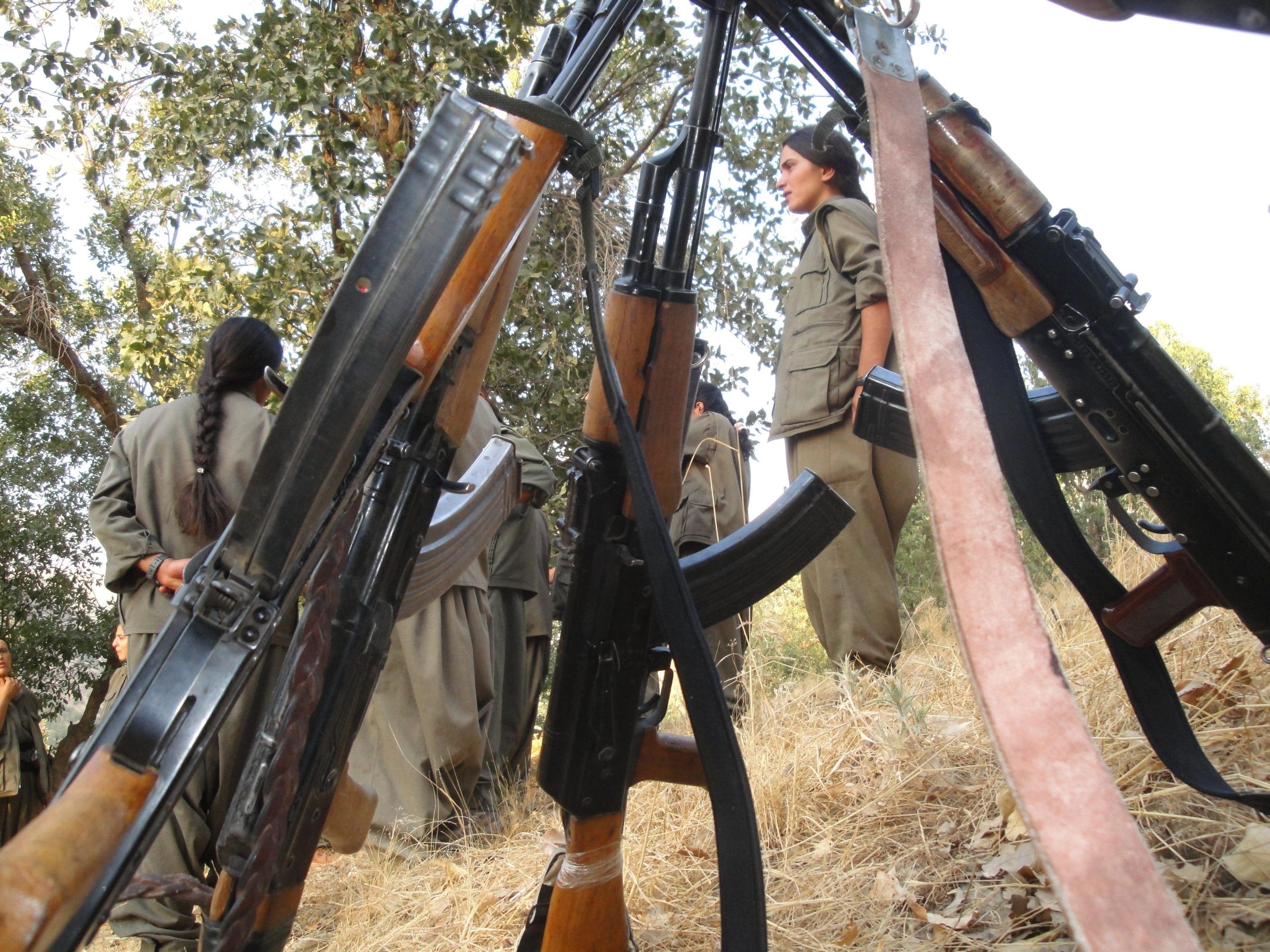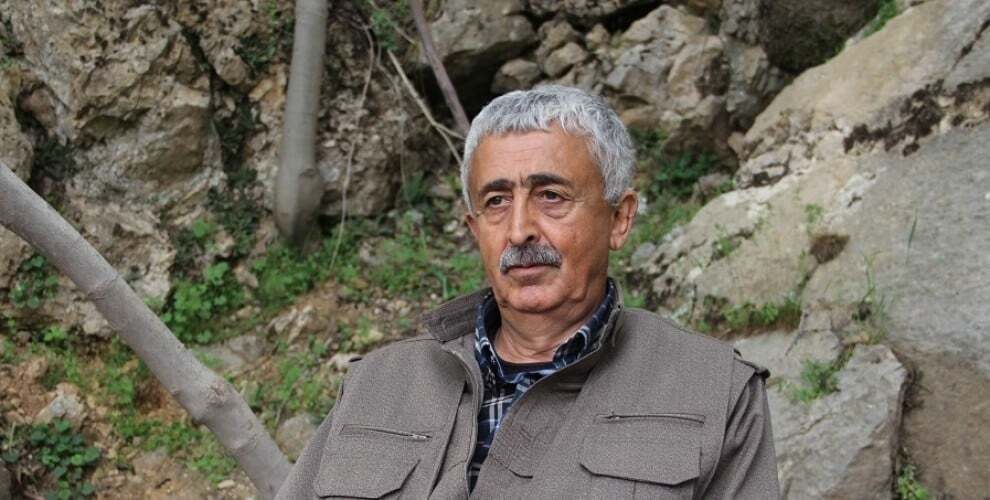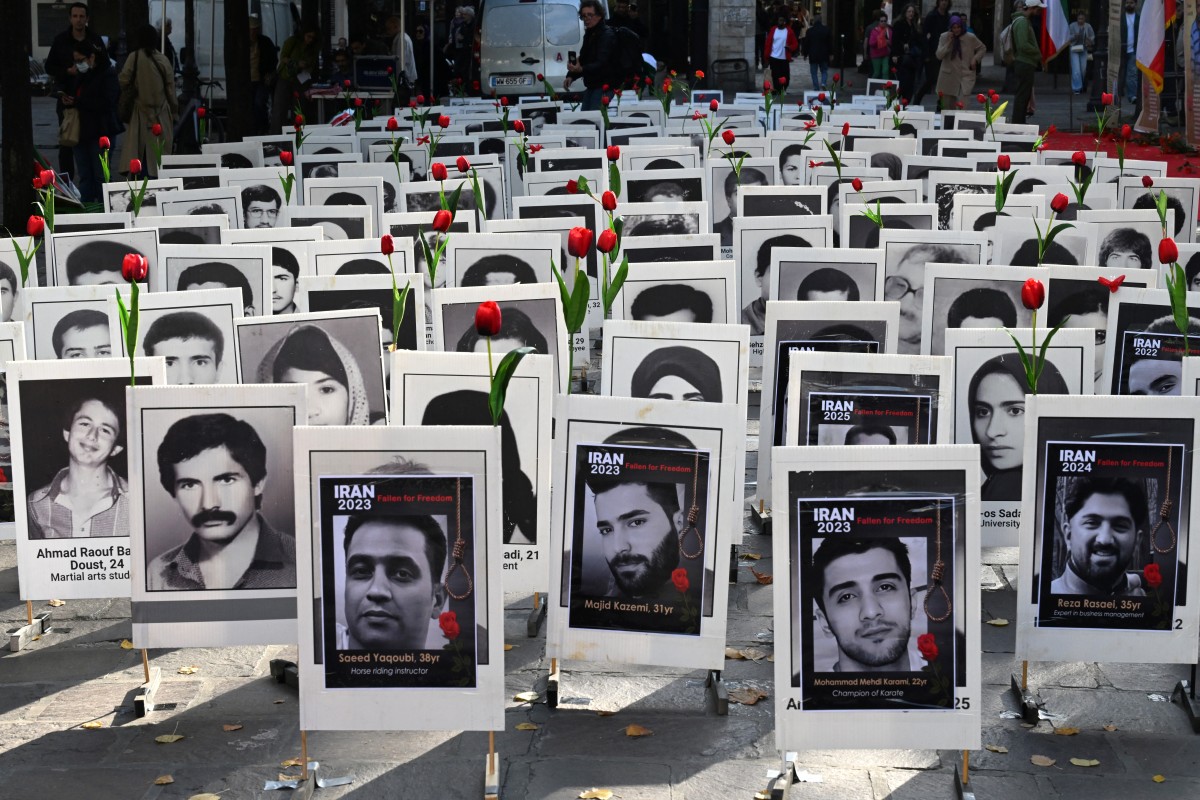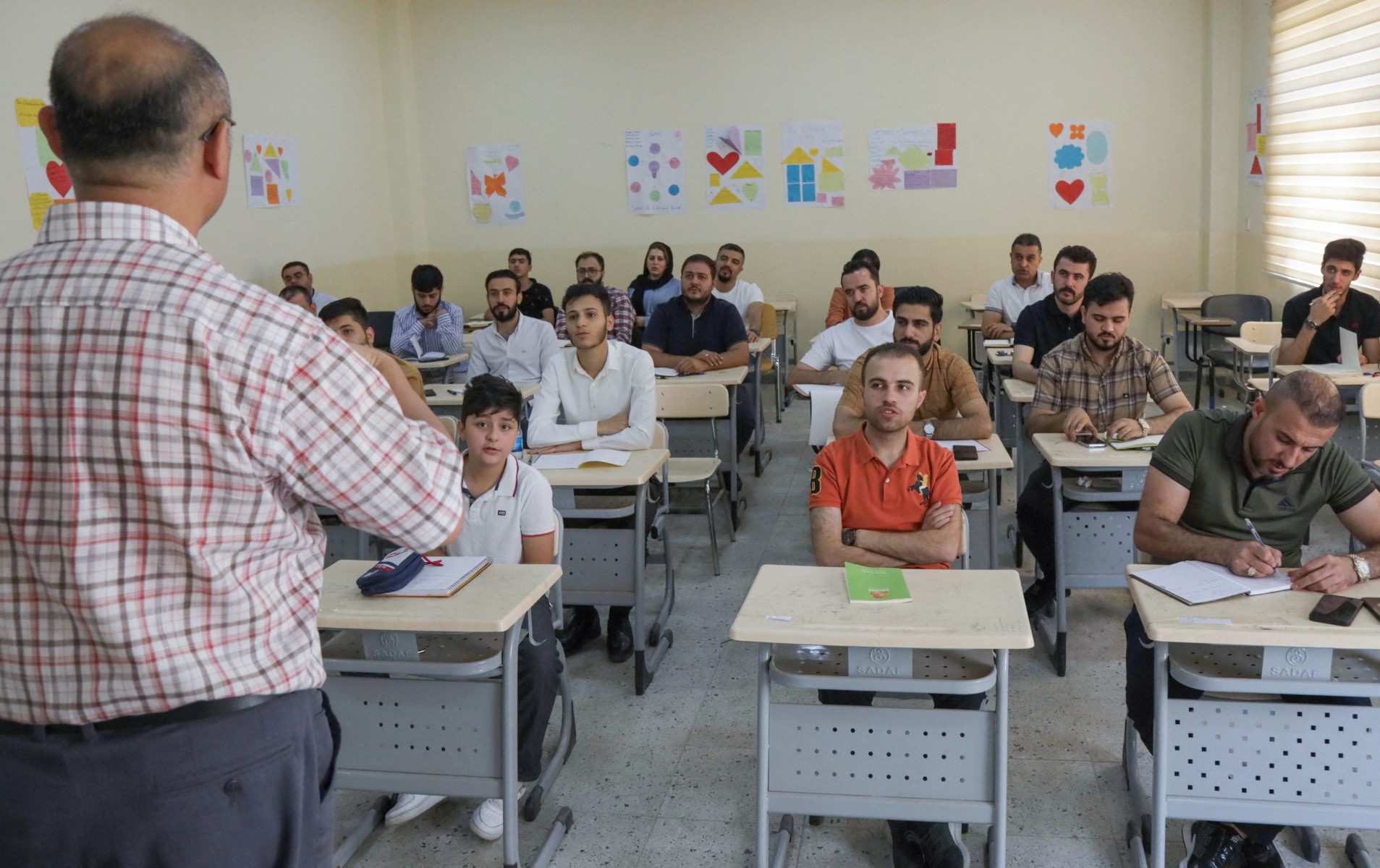From Ballots to Bullets: The PKK Between Civic Politics and Insurgency

A group of PKK guerrillas taking a rest after an afternoon training, Qandil Mountains, 2011 | Picture Credits: The Amargi
A group of PKK guerrillas taking a rest after an afternoon training, Qandil Mountains, 2011 | Picture Credits: The Amargi
Recent scholarship has urged closer attention to the politics of political violence. It explores questions such as what kinds of political possibilities existed before armed struggle became the grammar of conflict, and what the absence of those possibilities reveals about power, rights, and belonging. Few cases invite this lens more directly than the Kurdistan Workers’ Party (PKK). Long analyzed for its military resilience, the movement’s early political imagination—especially its experiments in municipal politics in the late 1970s—remained under the radar. Yet the PKK’s municipal politics in Batman in the 1977-1979 period reveals how the movement attempted to act through ballots rather than bullets, and how those efforts collided with Turkey’s restrictive regime of citizenship. When the avenues of representation were closed, the PKK returned with an insurgent repertoire. The issue has contemporary resonance, given the PKK’s recent declarations about ending armed struggle in exchange for recognition of democratic political rights—the very denial of which had shaped its birth.
Let’s talk citizenship
The Kurdish question in Turkey is often narrated through the binary of state and insurgency. Yet before the 1980 coup and the onset of large-scale war, southeastern Turkey witnessed a surge of electoral mobilization.
The Kurdish question in Turkey is often narrated through the binary of state and insurgency. Yet before the 1980 coup and the onset of large-scale war, southeastern Turkey witnessed a surge of electoral mobilization. Kurdish groups fielded mayoral candidates across multiple cities, questioning the state’s authoritarian and exclusionary ethno-nationalist foundations. In 1977 and 1979, the PKK contested municipal elections in Batman, winning the latter.
Situated between the cities of Diyarbakir and Siirt, Batman (Iluh in Kurdish) was originally a small village of only 319 residents in 1935. By the 1970s, the population had increased to 55,000, and by 1980, it had further grown to 86,000. The fundamental reason for this rapid growth was the booming oil industry since the 1950s and the construction of a railway connecting Batman with labour reserves beyond the surrounding villages and towns. Oil wealth, the railway, and rural-urban migration produced a growing working class in the city, while conflicts between villagers and landlords characterized the rural politics surrounding the city.
When Batman was officially established as a separate municipality in 1955, control of the municipal government became a key arena of competition among local elite groups, who aligned themselves with national political parties in exchange for resources to consolidate their political and economic interests. However, rivalries among these elites weakened their grip on the population, opening political opportunities for the Kurdistan Revolutionaries—soon to become known as the PKK.
The organization embedded itself in Batman in the second half of the 1970s through the organization of house meetings, visiting tea-houses, participation in youth and teachers’ associations, and, importantly, being active in the petrol workers’ union. It was through these spaces—homes, neighborhoods, associations, unions—that the Kurdistan Revolutionaries cultivated routine interactions with both existing and potential supporters. By 1979, the PKK had built a notable support base, primed to seize the political opportunity that arose in the form of a by-election. This opportunity emerged when a conflict between elite groups led to the resignation of Batman’s mayor, who had been elected two years earlier. For the PKK, this by-election represented a chance to act—not only on the right to vote, but to govern.
Edip Solmaz and the Fork in the Road
Practical restrictions posed a challenge for participation in the by-election: candidates had to be over 27 and have completed military service, criteria that the young PKK activists did not meet. The movement turned to a figure who could satisfy both the state’s formal requirements and the movement’s political vision: Edip Solmaz.
Solmaz came from a family known for supporting the Kurdish political struggle. They had migrated from a nearby village to Batman to work in the oil industry. After completing secondary school, Solmaz studied at the Military High School and Military Academy in Ankara. After graduating from the academy, Solmaz was stationed in Diyarbakır from September 1970 until his discharge in March 1977, serving as a first lieutenant. According to those close to him, the 1975 earthquake in the Kurdish town of Lice was a turning point. Measuring 6.6 on the Richter scale, the earthquake devastated the town and killed more than 2,000 people. Deployed there as a lieutenant, Solmaz participated in search and rescue operations, where he witnessed the derogatory and dehumanizing language and practices by his army colleagues. This experience, combined with disillusionment with the “progressive officers” idea, which could initiate change in Turkey, prompted a rupture. Solmaz was deserted, imprisoned, and discharged. After his release, he began studying law in Istanbul.
While in the military, Solmaz already had personal connections with people active in the Kurdistan Revolutionaries. In 1979, activists persuaded him to return from Istanbul to Batman and run for mayor. The PKK set up an election office behind the city’s main mosque. Committees sprang up across neighborhoods and villages. Coffeehouses turned into campaign rooms. Activists went door to door, school to school, shop to shop. On the campaign trail, Solmaz told those who would listen that he was neither the son nor the candidate of landlords and elites, but of the people—of democrats, patriots, progressives, and revolutionaries. He spoke about national oppression and everyday injustices. His campaign promised a form of halkçı belediyecilik (people’s municipalism), one that would improve lives through fair hiring, protection against price speculation, and municipal support for winter coal and basic goods, while also addressing the interests of Kurds, workers, and peasants.
Edip Solmaz won the October 14, 1979 election. The margin was narrow but unmistakable. But then the rumors started.
Edip Solmaz won the 1979 election held on October 14. The margin was narrow but unmistakable. But then the rumors started. The Raman, people said, had sworn Solmaz would never collect a salary. Indeed, on the 29th day, Solmaz was killed in front of his house. Who was responsible for the killing remains unclear. Those close to Solmaz believed it was an act of the state, with local hands on the trigger.
Table 1: Results of the October 14, 1979, Batman by-election
| Candidate | Party | Votes | Percentage |
| Edip Solmaz | Independent (PKK) | 3,876 | 30 |
| Fahrettin Özdemir | Justice Party | 3,677 | 29 |
| Şevki Akın | CHP1 | 2,045 | 16 |
| Abdulgani Demir | Independent (KDP) | 1,070 | 8 |
| Şeymus Demir | MHP2 | 894 | 7 |
| Lütfi Baksi | Independent (KUK) | 751 | 6 |
| (Unidentified) | SDP3 | 353 | 3 |
| (Unidentified) | CGP4 | 222 | 2 |
| TOTAL | 12,897 | 100 | |
Aftermath: The Door Closes
Less than a year later, the 1980 military coup shut down political space and brought about a ruthless military dictatorship. PKK activists who had staffed committee rooms and union offices slipped out of the cities, passed through villages, and left for Syria, Lebanon, and eventually the mountains of the Kurdish region in northern Iraq. There, they regrouped and reorganized to continue the struggle for rights—this time as a guerrilla army. Familiar names reappeared in new roles. In August 1984, under the command of Mahsum Korkmaz — one of the young candidates active in the municipal elections in Batman and who later became the commander of the PKK’s armed forces abroad — the group launched coordinated attacks that marked the formal beginning of the insurgency.
Batman’s trajectory illustrates a broader pattern: when nonviolent political openings are foreclosed through assassination, repression, or coups, movements recalibrate. Insurgency did not emerge ex nihilo; it evolved out of a relational setting in which electoral victories were annulled, mayors were killed, trustees were appointed, and Kurdish political identity was rendered a security threat.
Remembering Ballots Before Bullets
If the aim is to broaden the political sphere so that contestation can occur through civic avenues, it is crucial to recall moments when politics attempted to breathe
If the aim is to broaden the political sphere so that contestation can occur through civic avenues, it is crucial to recall moments when politics attempted to breathe. The Batman case shows that PKK escalation into an insurgency was not predetermined. The exclusionary design of Turkish citizenship—its demand that Kurds become what Mesut Yegen named “prospective Turks” as a condition for belonging—rendered Kurdish civic politics nearly impossible within the system.
In this light, the story of ballots before bullets is more than a prelude to war. It is a record of claim-making—an assertion of citizenship and a demand to replace a politics of denial with one of recognition. When that claim was violently suppressed, the repertoire shifted, leaving consequences that continue to shape Turkish and Kurdish politics nearly half a century later. Almost half a century after the PKK’s municipal politics in Batman, the key question is whether Turkey will open the door to a politics of citizenship.
This contribution is based on an article co-authored with Francis O’ Connor. For the full article, see: Jongerden, J., & O’Connor, F. (2025). Contesting an exclusive citizenship regime: the Kurdistan Workers Party (PKK) and its electoral mobilisation in Batman in the late 1970s. Third World Quarterly, 46(8), 913–931. See: https://doi.org/10.1080/01436597.2025.2518501
Joost Jongerden
Joost Jongerden (PhD) is an Associate Professor of Rural Sociology at Wageningen University, the Netherlands. His research focuses on forced migration, rural development, and political and violent conflict in the Kurdistan region, with particular attention to dispossession, displacement, and how people actively pursue alternative futures—an approach he describes as Do-it-Yourself Development.



